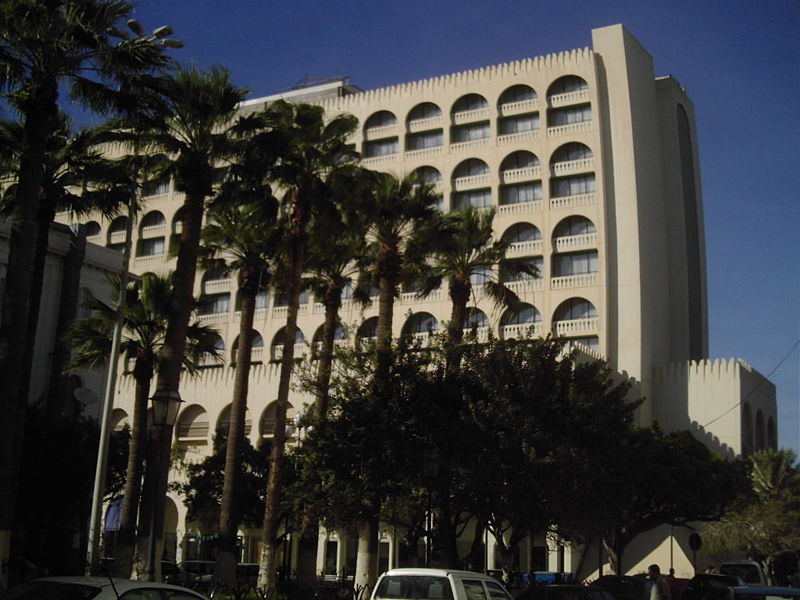Political Minutes: The Libyan Transition
Thursday afternoon, The Center for International Conflict Resolution (CICR) at the Arnold A. Saltzman Institute of War and Peace Studies (SIWPS) hosted a Round-Table Discussion with Libyan visitors through the Department of State's International Visitor Leadership Program which featured members of Libyan society from government, civil society, and media. Wisam Suliman Alsaghayer, attorney and legal advisor in the Prosecutor’s office in Misrata, a member of the High Commission on Elections, and an investigator for the International Criminal Court, Mr. Emad M. Salem Ali, Editor in Chief, Libya Al Hurra TV, and Ibrahim Saad A. Elshgaabi, founder of an NGO to help displaced refugees, held a discussion on Libya’s civil society since the revolution began February 13, 2011.
Alsaghayer began the discussion, recalling Libya’s transition which has moved the nation past Qaddafi’s forty year reign and a state of lawlessness toward democratic elections on July 7, 2012. The speakers hailed the July 7 elections as a huge milestone in Libyan history, speaking to the profound ability of Libyans to transcend the oppression and corruption under Qaddafi.
A major challenge, stated Alsaghayer, who serves on the High Commission on Elections, was not in forming elections but in having Libyans who had never voted before and who were largely ignorant of the electoral process, to vote. More than fifty percent of the eligible three million Libyans ended up voting in the election.
The motivation for Libyans to affect change in their own society was echoed by Elshgaabi, who worked with Libyan civil society during the transition period. “Somehow they [Libyans] are really thirsty to get an education,” he said in English.
Following NATO’s intervention and U.N. Security Council Resolution 1970 referring the crimes in Libya to the ICC, Libya’s revolution has faced a tension surrounding the impending trial of former Qaddafi loyalists. Alsaghayer explained the struggle between Libyan national sovereignty and international powers. Libya has been isolated from the international scene for the past 40 years. During the transitional period, the involvement of international organizations such as NATO might have been preferable to the internal state of lawlessness. But since then, a contest has emerged concerning the trial of Qaddafi loyalists. The ICC as well as certain European countries seek to try Qaddafi’s son, Saif al-Islam and his intelligence chief, Abdullah Al-Senussi, for crimes against humanity. Critics of a domestic trial fear that proceedings in Libya would not ensure a free and fair process and would instead impose a death penalty.
Meanwhile, Saif Qaddafi still remains in Libya, and Abdullah Al-Senussi was recently extradited to Libya on Wednesday. As elections have reinstated Libyan national sovereignty, the interference of an external entity in Libya’s domestic affairs is looked upon negatively. The new Libyan government will keep these former regime members under its jurisdiction as an attestation to its newly founded national sovereignty amidst international interference, stated Alsaghayer, who has worked with both the ICC and the Libyan judiciary.
Skepticism about the judicial progress that Libya has made remained in the audience, but Alsaghayer assured the audience that he Libyan judicial system is improving. He marked the presence of the new Human Rights Council in the Libyan government and said “Two to three years for a transitional period is too short” noting that transitions take time.


